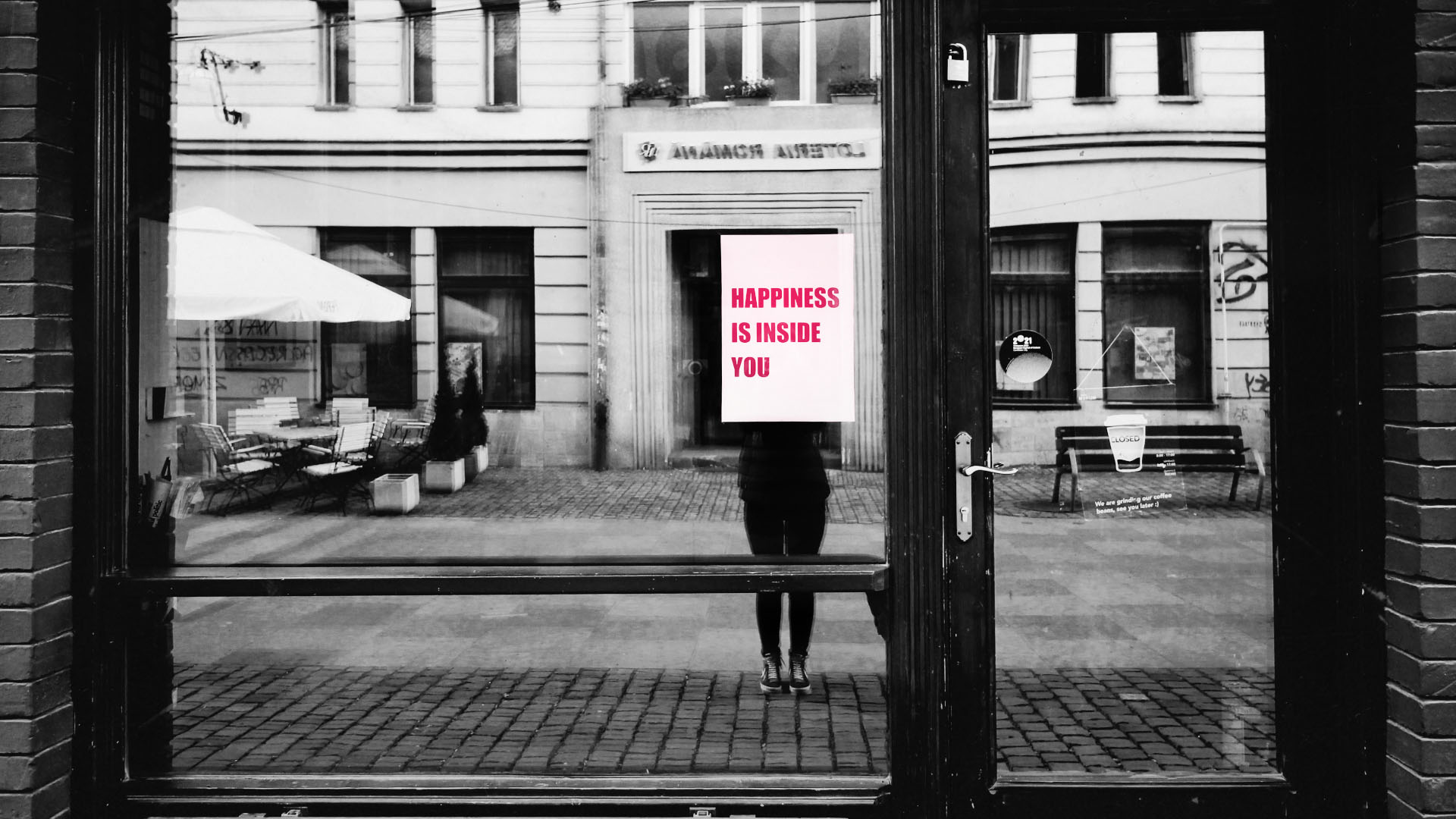“You make known to me the path of life; in your presence is fullness of joy, and at your right hand are pleasures forevermore” (Psalm 16:11 ESV).
In her 2011 book, Ellen DeGeneres said, "…the key to happiness is being happy by yourself and for yourself. Happiness comes from within. You have the power to change your own mindset so that all the negative, horrible thoughts that try to invade your psyche are replaced with happy, positive, wonderful thoughts."
This advice sounds very catchy and pleasant. In some limited ways, it’s correct; we do have control over our reactions to bad circumstances. We come up against the limits of positive thinking rather quickly, however.
Imagine Dietrich Bonhoeffer in his cell at Flossenbürg concentration camp muttering to himself, “Just be happy. Just be happy.” Sheer positivity probably wouldn’t have done much for Louis Zamperini as a Japanese prisoner of war in Naoetsu.
The problem with this advice is that it makes the source of life’s contentment and delight spring from one rather vulnerable and unreliable individual: you.
A Blind Hunt
Blaise Pascal bluntly states in his Pensées, “All men seek happiness. This is without exception. Whatever different means they employ, they all tend to this end…. This is the motive of every action of every man, even of those who hang themselves."
Within his observation is the acknowledgement that people who are searching for their own happiness will also often harm themselves.
Like a series of falling cards, attempting self-generated joy quickly leads to excessive inward focus that results in social and empathetic myopia. This, predictably, damages relationships, and the happiness-seeking individual ends up worse off than before which can push them to even more earnestly seek that ever elusive delight in life.
The secular pursuit of happiness is often a lonely one.
It might be easy to assume that Christians are largely exempt since “The joy of the Lord is my strength” according to Nehemiah 8:10.
Very often, though, believers are criticized for not seeming much better off than nonbelievers in terms of contentment. The most common accusation leveled at the church is that it’s full of judgmental hypocrites.
No matter how you spin that, it definitely doesn’t sound like a party.
Designed with Empty Space
This yearning for happiness that goes to the root of our hearts has divided many Christians into two camps.
On one side are those who embrace a starchy “joy” that only allows for discussions about mission work, baptisms or nearly bursting into flames at the sight of heathen Easter eggs in the grocery store.
On the other side are believers who espouse religion without the pesky fences around their pleasures. Getting drunk on the regular, moving in with a boyfriend or girlfriend and blowing through budgets for the newest upgrades are all fine because God just wants them to be happy.
Both views reflect the same issue: neither is about God at the end of the day.
In his book Mere Christianity, C.S. Lewis describes part of the difficulty with believers and happiness: “Now God designed the human machine to run on Himself. He Himself is the fuel our spirits were designed to burn, or the food our spirits were designed to feed on. There is no other. That is why it is just no good asking God to make us happy in our own way without bothering about religion.”
He concludes, “God cannot give us a happiness and peace apart from Himself, because it is not there. There is no such thing.”
Beyond peace, Psalms 4:7 goes so far as to say “You have put more joy in my heart than they have when their grain and wine abound.” A life steeped in Christ will leave us more grateful than anyone at an overflowing party.
Planning for Fun
In his weekly podcast, Gary Wilkerson shared his own journey navigating what God means in Psalms 4:7 and other Bible passages like it.
“I would be with my kids at the park,” he said, describing his own struggle with, as he calls it, morbid holiness, “and I'd be pushing them on the swing thinking, ‘Sorry, Jesus. I know I should be praying right now. I'm sorry I'm doing this.’”
As he reflected on the life of Christ, he considered how Jesus was someone that children liked, to the point where so many had gathered that the disciples actually tried to chase them off. “Little children don’t like people who aren’t fun.”
What if we saw enjoying the world God has made—within the boundaries of not sinning—as honorable and right?
“Don't be guilty about having fun,” Gary remarked. “I would recommend people plan it into their daily life. Plan times to have fellowship with their friends, plan times to do the thing that you like to do.”
